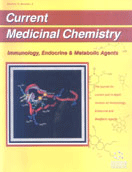Abstract
Obesity is a common, chronic, complex, and multifactorial disorder and its management requires a multidisciplinary approach, including diet, exercise, behavior modifications, and drugs, all of which are key components of the treatment. Antiobesity drugs often have to be prescribed, despite adherence to appropriate lifestyle modifications. The goal of pharmacological management of obesity is not only to induce weight loss, but also to improve comorbidities associated with obesity, namely the components of metabolic syndrome, sleep apnoea, etc., and also to help patients maintain compliance, maintain body weight loss, prevent weight regain, as well as to improve their quality of life. The efficacy of the treatment should be evaluated after the first three months, and the drug should be withdrawal in nonresponders, or - if possible - an alternative therapy may be tried. There are marked differences regarding drug availability in the world, however the long-term use of approved antiobesity drugs is limited to five drugs (orlistat, phentermine/topiramate, lorcaserin, naltrexone/bupropion, and liraglutide), all of which must be used in conjunction with lifestyle intervention. We will review currently approved antiobesity medications, focussing mainly on clinical aspects, and we will also discuss some of the new drugs that are in the pipeline.
Keywords: Antiobesity drugs, Bupropion, Liraglutide, Lorcaserin, Medical treatment, Naltrexone, Obesity, Obesity pharmacotherapy, Orlistat, Phentermine, Topiramate.





















